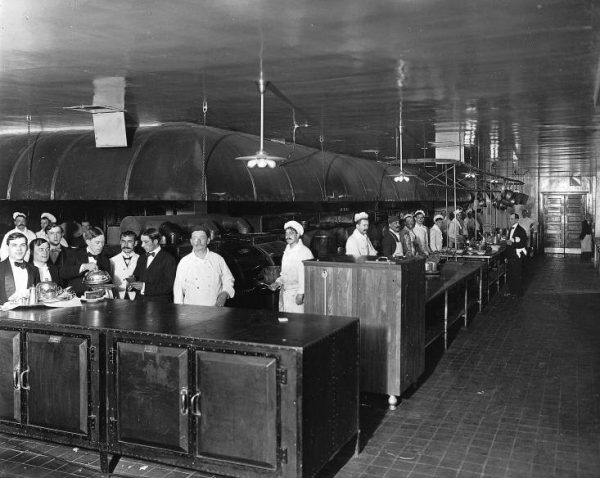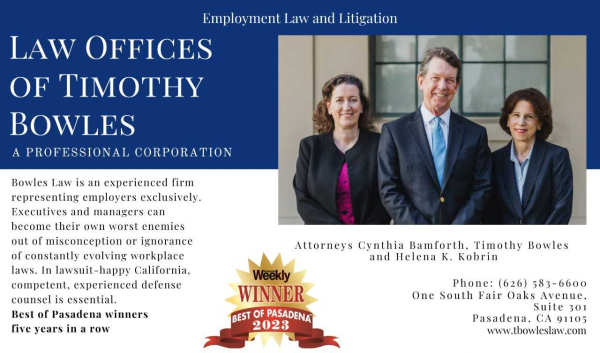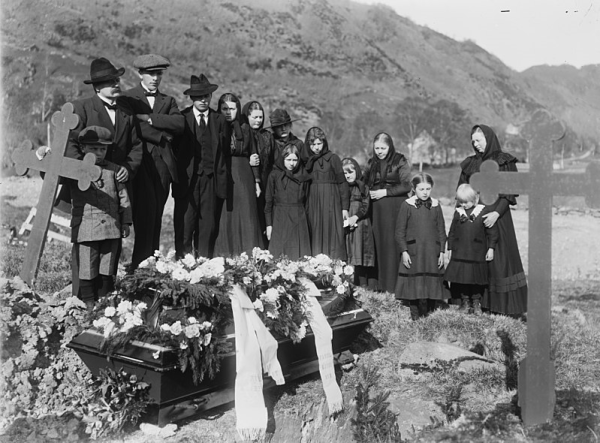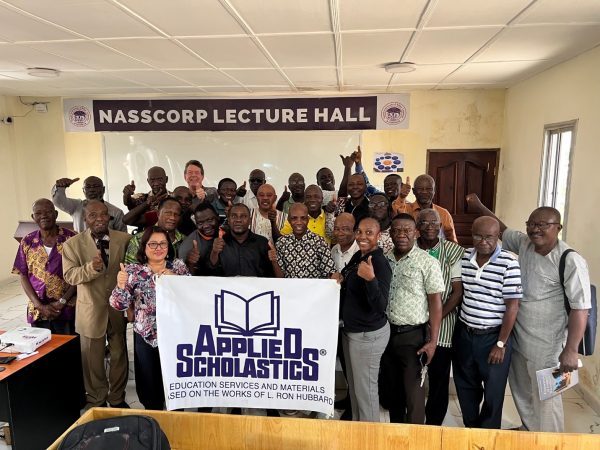Author Archive

WHAT’S NEW IN 2024
EXTENDED COMEBACK RIGHTS
Hospitality Workers to Receive Longer Rehire Protection
Since 2021, California has required certain hospitality and business services industries to give rehiring preference to workers laid off because of the pandemic.

FIVE-PEAT!
For the fifth year running, Law Offices of Timothy Bowles is Best of Pasadena’s best law firm. Thanks to everyone who voted and supported us. We are pleased to continue to provide experienced and trustworthy guidance to business navigating the difficulties of California employment law.

WHAT’S NEW IN 2024
EQUAL OPPORTUNITY INTOXICATION?
Off-Hours Cannabis Users Now Protected Against Workplace Discrimination
On January 1, 2024, California will become the fourth state in the union – after Maine, Montana and Washington (plus the District of Columbia) — to bar workplace discrimination for off-the-job and off-workplace cannabis use. As below, the law retains employer rights and obligations to maintain an alcohol- and drug-free workplace and to conduct legally compliant drug screenings.

WHAT’S NEW IN 2024
CALIFORNIA VS. ARBITRATION: NEXT ROUND
Legislature Permits Courts to Carry on with Cases While Arbitration Denial Appealed
The Federal Arbitration Act (FAA) protects the rights of parties, including employers, to engage in arbitration rather than court-adjudicated lawsuits to settle disputes. In contrast, the California legislature has long attempted to nullify employers’ ability to settle disputes with employees via arbitration.

WHAT’S NEW IN 2024
EXPANDED PAID SICK LEAVE REQUIREMENTS
California Employers Must Now Provide 40 hours or Five Days of Sick Pay
The Healthy Workplaces, Healthy Families Act of 2014 (Act) requires most California employers, regardless of size, to provide paid sick leave benefits to any temporary, part-time, and full-time employee.

HANDBOOK HELPER EPISODE 39
FIRST RESPONDER JOB SECURITY
Emergency Service Volunteer Leave Policies
California employers must provide protected leave to employees requiring time off to perform these volunteer civil services

ASSESSING CRIMINAL RECORDS IN HIRING
New Regulations in Effect October 1, 2023
Last week’s blog, Helping Criminals Back Into Society, warned employers with five or more on payroll to steer clear of California Fair Chance Act (Act) hiring practice violations.
Effective October 1, 2023, the state Civil Rights Department (CRD) has issued revised regulations on the Act’s requirements. Among other things, the revisions direct individual assessment for each applicant with a criminal history disclosed or discovered ● by a post-hiring offer background check, ● during an employee’s move to a new post, or ● on change in the business’s ownership or management.

HANDBOOK HELPER EPISODE 38
BEREAVEMENT LEAVE POLICY
As of January 1, 2023, California employers of five or more on payroll must provide up to five days of consecutive or non-consecutive unpaid bereavement leave to eligible full-time or part-time employees upon the death of a “qualified family member” (e.g., spouse, child, parent, sibling, grandparent, grandchild, domestic partner, or parent-in law), which must be taken within three months of the death.

HANDBOOK HELPER EPISODE 37
ALCOHOL AND DRUG REHABILITATION PROGRAMS POLICY
Although current illegal drug use is not protected under California or federal law, employers with 25 or more on payroll must reasonably accommodate eligible employees who wish to enter an alcohol or drug rehabilitation program. See, California Labor Code sections 1025-1028.

THE ROAD TAKEN
Fellow Travelers on Humanity’s Highway
Tuesday, July 18 dawns and we venture forth, 7:00-ish, on the only road to town.
